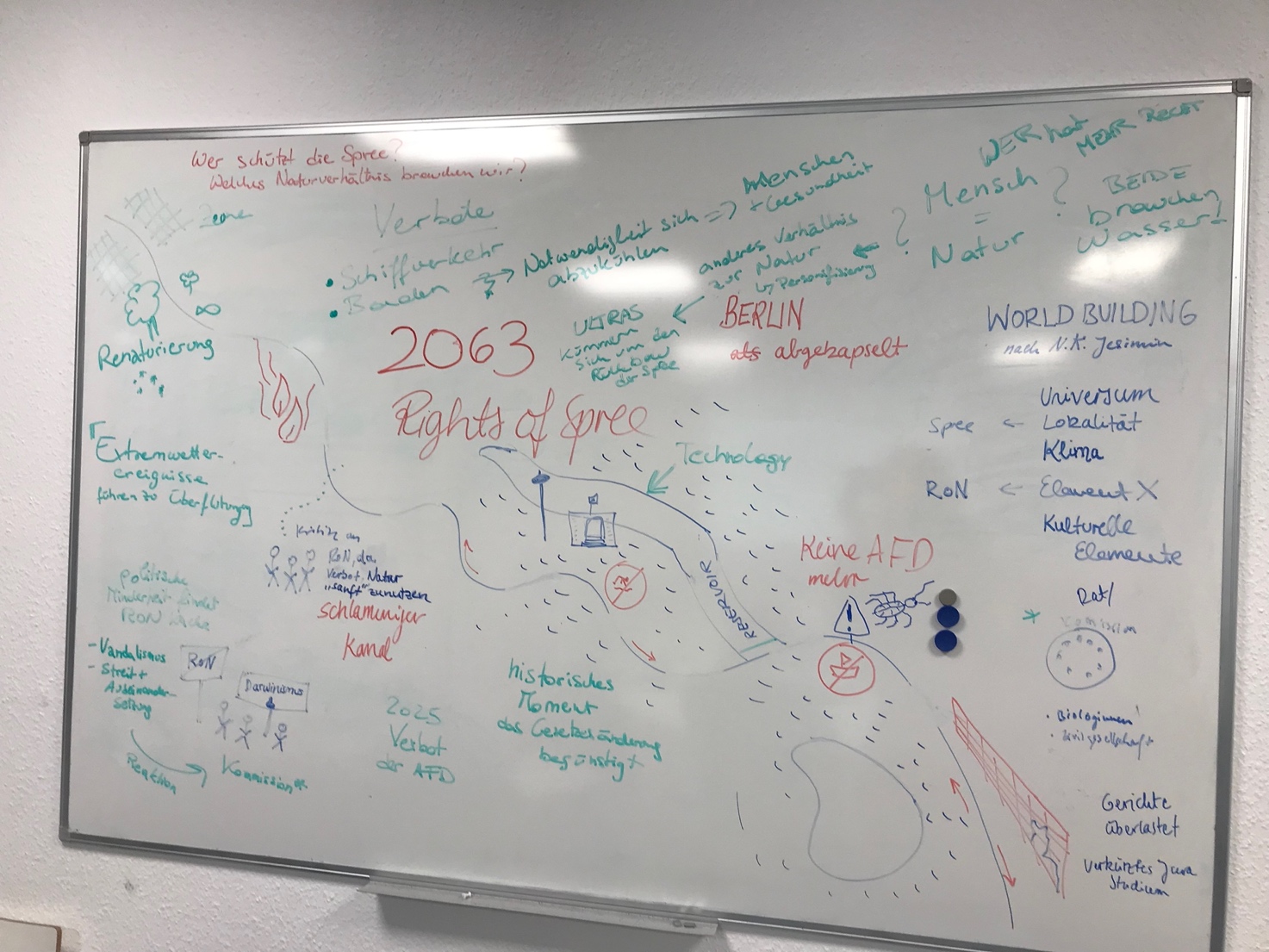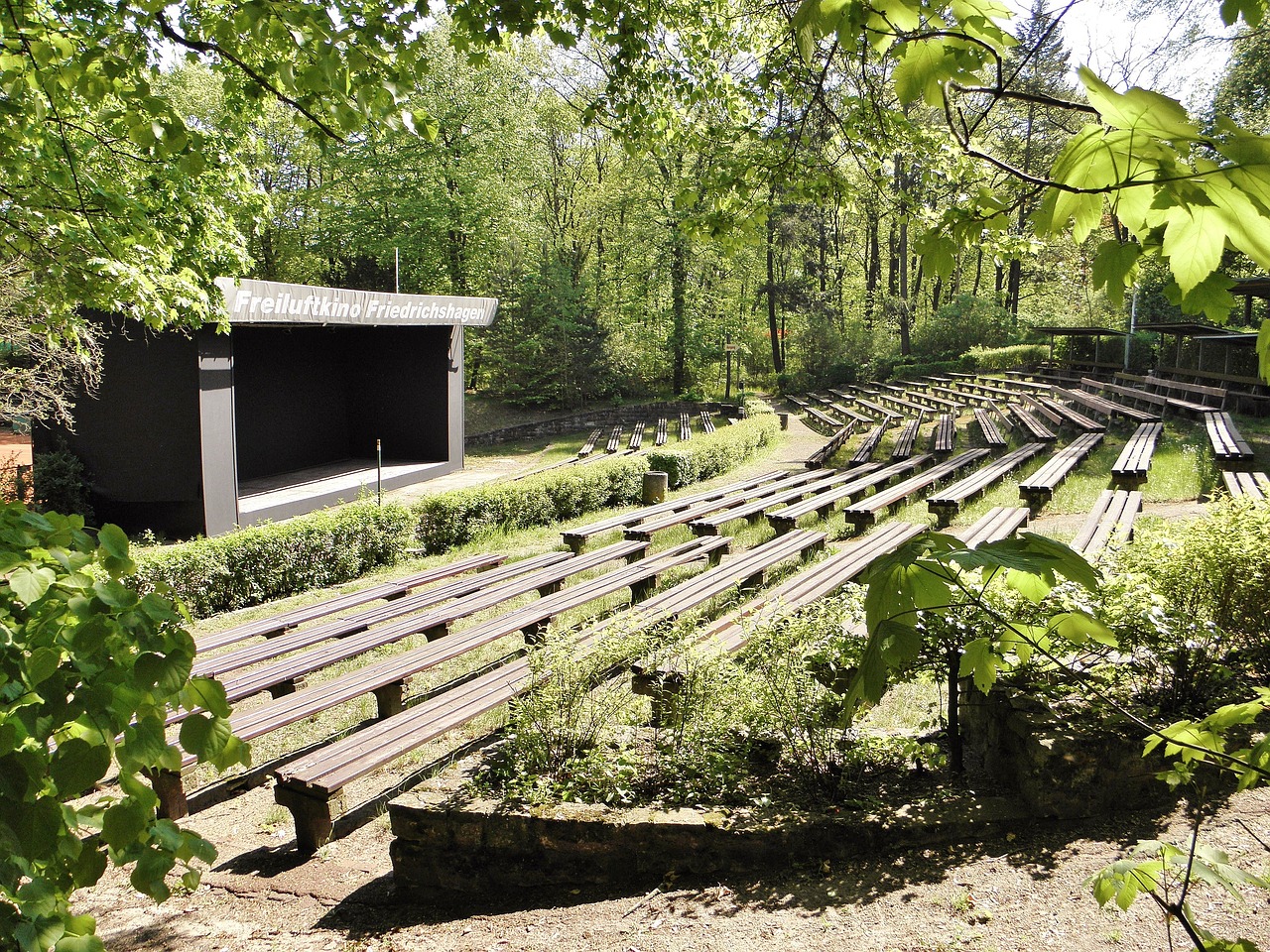Humboldt-Scholarship
Bachelors & Masters
2023/24 Right of nature – right to food?
The Themenklasse 2023/24 deals with fundamental questions and concrete examples of basic needs for a ‘good Anthropocene’. On the one hand, current developments will be critically questioned, on the other hand, new ideas will be developed, evaluated and tried out. The topic ‘Right of nature – right to food’ offers the scholarship holders the opportunity to bring the knowledge and methods of their respective fields of study into the joint interdisciplinary work and thus enable an ecological, economic, ethical, social and legal consideration of the problem.
Final report
Marie Mihanovic (Law)
Marie has examined various legal approaches and their justifications in the context of the debate on the introduction of “rights of nature” in Germany. To this end, she first provides a theoretical introduction to the current situation of environmental laws and nature conservation in Germany. She also explains how other countries assign rights to specific ecosystems or to nature as a whole. In addition, she has advised some of the other research groups within the Themenklasse. In collaboration with the “Rights of the Spree” group, the student researcher has drafted a hypothetical law that has been incorporated into their visions for the future, and she has analyzed the rights of rivers in more detail using the example of the Atrato River in Colombia.
Vero Pinzger (European Ethnology), Cosima Victoria van Mierlo (Integrated Natural Resource Management), Paulina Schute (Urban Geographies)
In 2016, Colombia’s Constitutional Court recognized the Atrato River as a subject of rights and underscored its ecological importance. Three members of the Themenklasse have taken this case law as a model and developed a vision of the future in which the Spree becomes a subject of rights and thus receives rights from nature. For this purpose, they have drafted a law that provides the basis for a common world. In this world, three different visions of the future are set in the year 2063, which represent an alternative development of human-environment relations. In terms of methodology, the group designed a “world-making” workshop and carried it out with the other participants of the Themenklasse.

Kristoffer Sturm (Psychology), Jamina Akoua Kouablan Klein (Agricultural Sciences), Lea Runge (Statistics)
In cooperation with two Berlin cinemas, this group conducted surveys on the influence of films on audience attitudes towards human-environment relations and the rights of nature. The research question of the project is: How and by which factors does the representation of nature in different films influence the affective attitude of the audience regarding human-environment relations and the concept of “rights of nature”? The questionnaires will be evaluated using R software and then analyzed descriptively.

Photo credits: movie theatre Friedrichshagen from reverent on pixabay.
Antonia Schiffer (Philosophy), Tobias Lechner (Philosophy), Zoë Jézabel Steingass (European Ethnology)
The group explored the possibility of a transformative paradigm shift in relation to a different human-nature relationship. The focus was on the rights of nature, the understanding of law and the underlying natural philosophical worldview of the rights of nature. To this end, the student researchers examined the referendum “Rights of Nature” in Bavaria and interviewed its initiator. In addition, they developed and evaluated arguments for and against a transformative paradigm shift from a broad spectrum of scientific work as part of a theoretical section. They then applied these findings to the referendum.
David Verdugo-Raab (Global Change Geography), Lysianne Wolf (Global Change Geography)
This group investigated what strategies might help people feel more connected to nature (again). It examined the role that the “rights of nature” can play and also what art-science collaborations could achieve. The topic is presented through a fictional dialogue based on interviews with artists and scientists in Finland.


